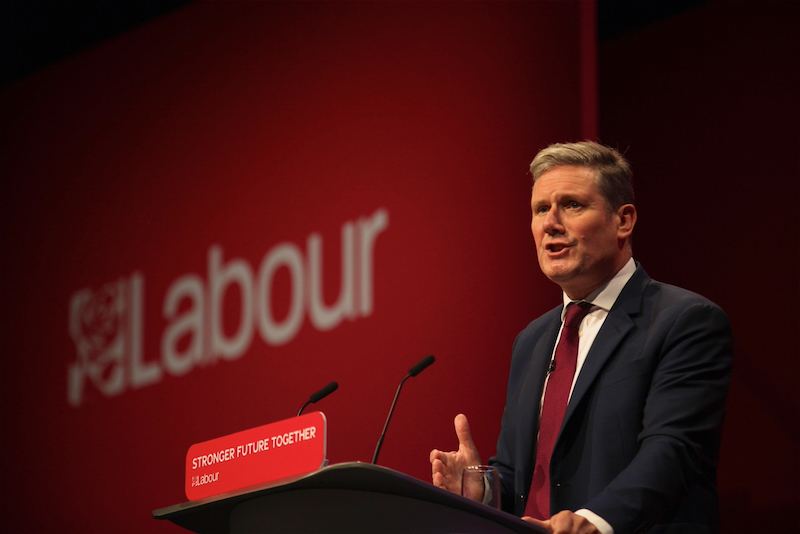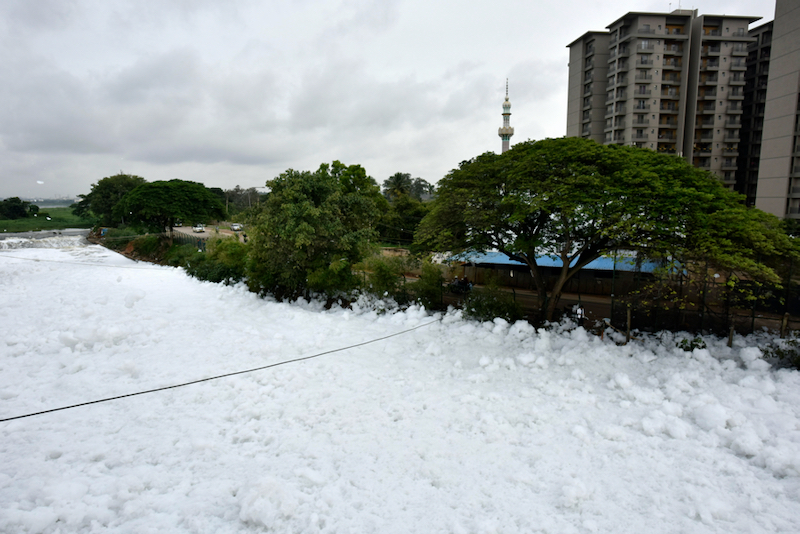Returning from my first time in India and heading straight for COP26 in Glasgow has been an unforgettable whirlwind of emotions, earnest desires and excitement. India is undoubtedly one of the most beautiful and biodiverse countries in the world, but also one of the most plagued by climate issues. While I was there, at least 26 people died in floods in Kerala – a state prone to flooding during monsoon season each year but the floods have been worsening each year.
My first impressions upon arriving in the Darjeeling district of West Bengal, apart from the cows lying in the middle of the road, were the shockingly high levels of environmental degradation. From the mountains of litter on the sides of the road and rubbish in rivers, to air pollution from the excessive traffic.
Everywhere I went I witnessed disregard for the environment, but in equal measure acknowledgement of the nefarious effects of climate change, for example, higher humidity which has increased the mosquito population carrying more harmful diseases.
When I travelled 2000km south to Hyderabad, the fifth largest city in India, I was initially impressed at how clean it was, but it wasn’t long before this illusion was shattered. While in Hyderabad, I visited Hussain Sagar Lake once famous for the largest Buddha statue in India seated in the middle, but now known for being one of the most polluted lakes in India. India is also home to the most polluted lake in the world, Bellandur in Bengaluru. Aside from the rubbish floating on the top, which included suitcases, I learned that below the surface are thousands of statues that people in Hyderabad are accustomed to throw in the lake after religious festivals.
The burden of environmental degradation falls disproportionately upon those on the lowest rungs of society, which in India are those either at the bottom of the caste system, “unscheduled” castes or “untouchables”, or “tribals”, India’s indigenous population outside of the caste system, such as the Adivasi.
The Indian caste system, formally abolished after independence in 1950, is deeply entrenched in all aspects of Indian life, particularly socially and economically. It dictates where you live, who you can marry, and which jobs you are permitted to carry out.
It is the unscheduled castes and tribals who live in the most precarious settlements on the sides of roads or rivers, next to or physically among the pollution. Then there is the issue of access to land, with the government taking away land that has been home to tribals for hundreds of years. These groups are employed in “unclean occupations” such as manual scavenging and road sweeping, which exposes them to the pollution. The breakdown of the caste system requires much more work, but the solutions to the climate crisis are already here, and if climate change can be reversed then maybe so can the caste system.
It has been an exciting week here in Glasgow at COP26. I am optimistic about the future. One of the main headlines from day one of Cop26 was Prime Minister Narendra Modi’s pledge that India would reach zero carbon emissions by 2070. This means that India’s energy needs will continue to be run on fossil fuels for the next twenty years before starting to reduce. As the third largest emitter of carbon emissions in the world, this is decades later than many other countries, but it marks the first time the country has put an end date on its contribution to climate change. India’s 2070 pledge means that all major emitters have now declared a net-zero deadline, it’s a long way off, but it effectively puts a backstop on when the world will stop burning fossil fuels.
Lucy Gillingham is International Programmes Officer, Jesuit Missions UK



 Loading ...
Loading ...
What do you think?
You can post as a subscriber user ...
User comments (0)